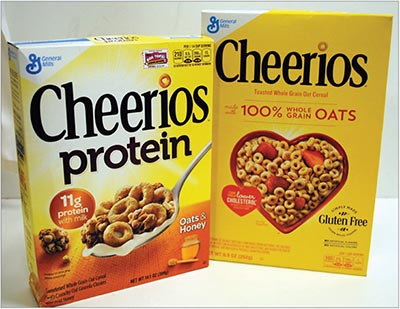Peter's Memo: Taking "Big Food" to court


It’s a simple ask. Consumers should be able to easily identify whether foods marketed to them are healthy or not. But they often can’t.
Restaurants and grocery store aisles are awash in deceptive claims, making it difficult for us to know the truth about what we eat.
The Center for Science in the Public Interest, Nutrition Action’s publisher, is fighting back against these marketing scams, under the leadership of Maia Kats, our director of litigation. We use the law as a tool...and it’s a powerful one.
In fact, CSPI has pioneered the use of litigation to remedy deceptive food marketing.
Over the years, our lawyers have forced more accurate labeling from many of the biggest companies, including Campbell, Coca-Cola, General Mills, and PepsiCo. These victories have deterred other manufacturers from making similarly deceptive claims.
A few examples:
Naked Juice. Naked’s Kale Blazer can “pack more kale into your diet,” promised ads a few years ago. But Kale Blazer is largely comprised of orange and apple juices. Another Naked juice, Green Machine, has more apple juice than any of its greens.
Last year, we reached an agreement with Naked, a unit of PepsiCo. Among the changes: images of fruits and vegetables on Naked labels now reflect how much of those ingredients are inside the bottles.
CVS Algal-900 DHA. “Clinically shown to improve memory,” claimed CVS’s omega-3 supplement. But the claim was based on a study that does “not reveal any improvement in working memory,” according to the Federal Trade Commission. Our lawsuit, filed in 2016, is still in progress.

Cheerios Protein. General Mills marketed Cheerios Protein as a protein-enriched version of original Cheerios, charged our 2015 lawsuit. Yet Cheerios Protein has just a smidge more protein...and about 16 times the sugar.
In July, we reached a settlement with General Mills. The front of the box will now say “Sweetened” loud and clear, and “7g protein,” not “11g protein with milk.”
Jamba Juice. “Whole fruit! That’s how we blend,” claims the company.
In fact, many of Jamba’s smoothies are made with juice blends that contain mostly (cheap) pear, apple, or grape juices. They’re not predominantly whole fruit or vegetables.
What’s more, a large Jamba “fruit” smoothie can have as many as 600 calories and 128 grams of total sugars (about 30 teaspoons’ worth).
In August, we filed a lawsuit charging that the company is misleading customers. As we went to press, there was no word on a resolution.
We’re far from done. As long as the food industry keeps trying to trick consumers, CSPI will keep putting companies on notice that we won’t let them get away with deceptive ads and labels. Stay tuned.
Peter G. Lurie, MD, MPH, President, Center for Science in the Public Interest
Photo: CSPI.
Topics

